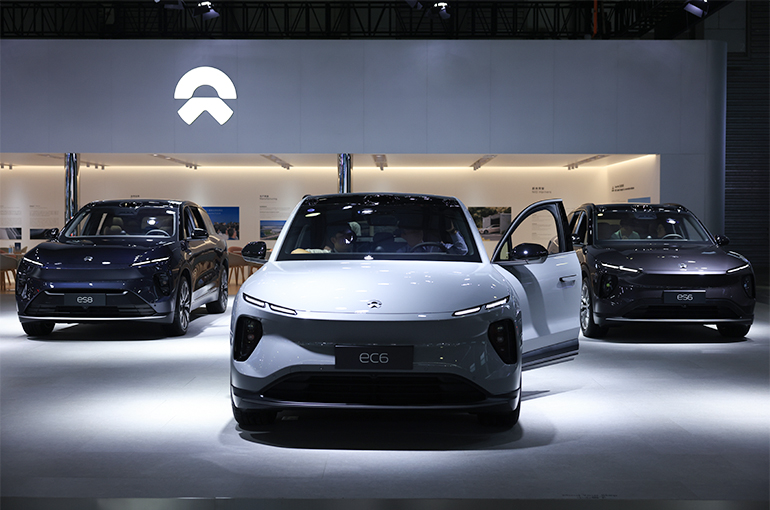 Nio Keeps Mum on Report Chinese EV Maker Is Weighing Bid for Audi Plant in Brussels
Nio Keeps Mum on Report Chinese EV Maker Is Weighing Bid for Audi Plant in Brussels(Yicai) Sept. 20 -- Nio has declined to comment on a media report that said the Chinese electric vehicle startup is considering bidding for Audi's idled factory in Brussels, an acquisition which would help it sidestep new European Union tariffs on imports of China-made EVs.
A Nio spokesperson told Yicai that the Shanghai-based automaker had “no comment at the moment,” when asked about the report yesterday.
Nio is weighing a bid for the Brussels plant, which would need to be submitted to Audi’s parent company Volkswagen Group by Sept. 23, Belgian newspaper De Tijd reported yesterday. The move would help Nio avoid the EU's new additional import duties on Chinese EVs.
Audi announced in July that it planned to restructure the Brussels plant, which produces Q8 e-tron EVs. Poor sales led the German carmaker to shut down the factory early this month, which has sparked labor strikes. Audi Brussels' spokesman Peter D'Hoore then has confirmed that the firm is in talks with potential investors, including carmakers.
Acquiring an established factory in Europe could be a major advantage for Nio, enabling the company to also scale its European operations more quickly. Compatriot carmakers such as BYD, Chery Automobile, and SAIC Motor have already set up production bases in Europe or are planning to do so by buying existing facilities or building new ones.
Overseas expansion by Chinese automakers usually involves transitioning from direct exports to localized production, sales, and supply chains, according to a report by Kaiyuan Securities. Direct exports enable a quick entry into new markets, while localized supply chains enable a better understanding of market dynamics, avoid tariff barriers, and reduce transportation costs.
Nio would consider building a plant in Europe if it could reach annual sales of 100,000 vehicles in the region, Chairman and Chief Executive William Li has said. However, according to market research firm Dataforce, Nio sold only 2,404 cars in Europe last year.
Nio's upcoming Firefly marque, its third brand, aligns more with the needs of European car buyers, which could help the automaker seize a competitive edge in the market despite increased trade costs, Li noted.
Nio kicked off operations at its battery swap station in Hungary in September 2022. Since then, the firm has opened 56 battery-swapping stations across Europe.
Editor: Futura Costaglione